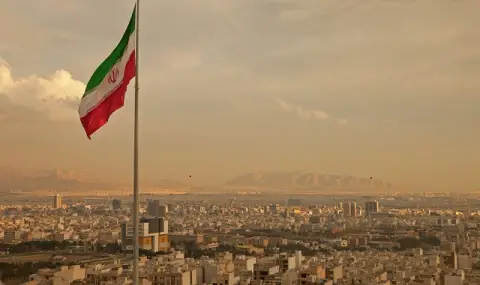While Israel condemned international officials that have paid tribute to Iranian President Ebrahim Raisi, one analyst described him as a “corrupt bureaucrat” and “a nobody“, who is best known for executing thousands of political dissidents in 1988, whose death will not change Iran, Israel's TPS news agency reported.
Raisi, Iranian Foreign Minister Hossein Amir Abdollahian and six other passengers died in a helicopter crash in the mountains of northern Iran in severe weather conditions, including dense fog, on Sunday.
The UN Security Council observed a minute of silence yesterday in memory of Raisi, drawing the ire of Israeli Ambassador Gilad Erdan.
„You read correctly that the UN Security Council observed a moment of silence to honor the memory of a mass murderer – Iranian President Raisi”, Erdan said in a video message.
"This council, which makes no effort to free our hostages, bowed its head today to a man responsible for the deaths of thousands of people in Iran, Israel and around the world. What next? A minute's silence on the anniversary of Hitler's death?“ – he said.
TPS discussed the significance of Raisi's death with Alex Greenman, an Iran expert at the Jerusalem-based Institute for Strategy and Security.
„The Iranian president does not play a very important role. He is responsible for implementing the policies of the supreme leader. He is responsible for the implementation of the country's economic policy. The president has no say, even a formal one, on Iran's foreign or regional policies, such as proxy wars and support for terrorist organizations. So from that point of view, Raisi's death is not very important," Greenman explained.
„I would say that the death of the foreign minister is more important. Raisi was a nobody. Hossein Amir Abdollahian was a gifted foreign minister and was an effective speaker, which is important. Most Iranians do not speak Arabic. "If you want to lead and manipulate the Arab masses, that's important," Greenman said.
Greenman dismissed the possibility that the helicopter crash was an assassination attempt. Killing Raisi would be too complicated and risky for a foreign government, and no one in Iran was interested in killing him, Greenman added.
„The Iranian Revolutionary Guard never respected Raisi because he is nobody. He was corrupt and nothing more," said the expert.
Raisi's death will not change anything regarding Israel's war with “Hamas” and the fighting on the Lebanese border.
„It is known that Iran is not interested in a large scale war between Israel and “Hezbollah”. They don't want to sacrifice “Hezbollah“ for “Hamas”. Iran's strategy is based on the fundamental position of avoiding being drawn into war. But now the ball is in Israel's court because the war with “Hezbollah” is already underway”, Greenman said.
Asked if Raisi's death would hinder Tehran's efforts to acquire nuclear weapons, Greenman said: “Yes, but not directly.“
According to Greenman, the government tends to advance its nuclear program when it feels stable. But in times of political instability, “the regime is more determined to defend itself. The name of the game is political survival“, he said.
Raisi earned the nickname “The Butcher of Tehran” because “during his revolutionary years he sent many people to their deaths” with his participation in a revolutionary court, Greenman explained, adding that “none of these people were criminals.“
Thousands of political dissidents were tortured and executed in 1988, and others disappeared.
At the same time, the news of Raisi's death highlighted the gap between the religious regime and society.
"There is joy in society and the regime cannot hide it," Greenman said.
Interim President Mohammad Mohber is "a more capable politician but not well known," Greenman said.
"The real question is who will succeed Khamenei, but that question is taboo. No one can imagine publicly discussing the issue of the successor, and Khamenei does not have good options. The president is not that important," Greenman explained.
Khamenei is 85 years old and rumors about his health condition appear periodically.
Today, Iran announced that presidential elections will be held on June 28. Only candidates approved by the influential Guardian Council may apply.
